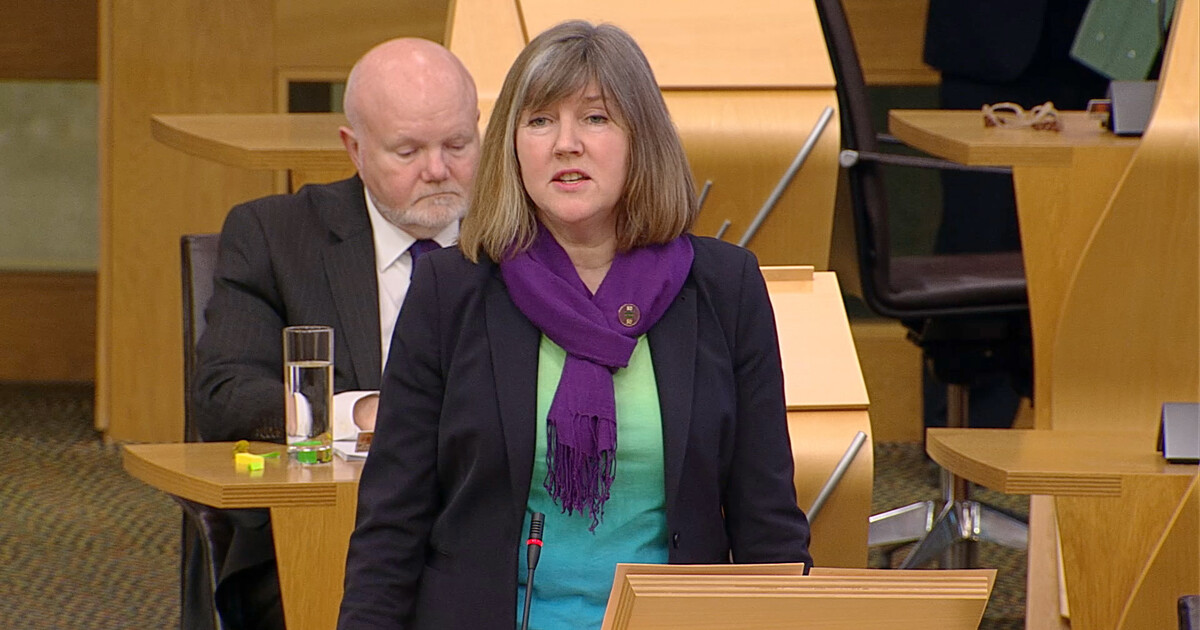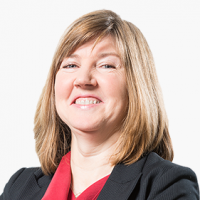HONOURING WOMEN’S EQUALITY CAMPAIGNERS PAST AND PRESENT

As MSPs today joined those marking the centenary of the Representation of the People Act 1918, which first gave some women the right to vote in UK elections, Alison Johnstone, co-founder of the Women 50:50 campaign that aims for gender balance in Scottish elected office, spoke for the Greens in the ‘Celebrating 100 Years of Women’s Right to Vote’ debate.
The full text of Alison's speech is included below.
------------------------------------------------
On Friday just past, I was privileged to host, in Parliament, and here in this Chamber, young women from Leith Academy, working with Amina Muslim Women’s Resource Centre, and Edinburgh Rape Crisis on a fabulous project called “My Big Beating Voice”. It aims to give young ethnic minority and Muslim women a safe space to explore issues to do with gender inequality, and seeks to help them amplify their voices and express their views. I can assure you, from my experience on Friday, that it’s working!
Their visit, just days before this important debate, couldn’t have been more timely.
As this Parliament did as it made progress and passed the Gender Representation on Public Boards (Scotland) Bill, we discussed the under-representation of women in our Parliaments, and in our local authorities. We discussed the barriers to their getting involved in Party politics and in politics more widely. We asked how political parties here in Scotland could help attract more black and minority ethnic women to join them. We need to. Their absence in our politics means we are all losing out.
Then we played a game. An educational one, of course. The young women had photographs of BME women’s rights campaigners, active in the fight for votes for women.
My colleague, Andy Wightman and I then had to match the photographs with slips of paper containing text summarising the life stories of these truly remarkable women. One of the remarkable women was Ida B Wells, widely known for her relentless work on behalf of the anti-lynching movement. She marched in the first suffrage March in Washington D.C. She marched with the other 21 founders of the Delta Sigma Theta Sorority, the only African American women’s organisation to participate. Mary Church Terrell, a sorority member, marched too. Like Ida she was the daughter of former slaves. Mary was determined, despite calls to the contrary, that afro-american women be represented on the march, saying they were “the only group in this country that has two such huge obstacles to surmount….both sex and race” and she pleaded “My sisters of the dominant race, stand up not only for the oppressed sex, but also for the oppressed race.” They were asked to march at the back to avoid upsetting any delegates from the southern United States. Ida Wells said “Either I go with you or not at all. I am not taking this stand because I personally wish for recognition. I am doing it for the future benefit of my whole race. She characteristically took matters into her own hands and joined the Illinois Unit as the march progressed, walking with white co-suffragists, Belle Squires and Virginia Brooks. Ida Wells famously said “The way to right wrongs is to turn the light of truth upon them.” Ida was commemorated on a US postage stamp in 1990.
On the 15th of this month, the Royal Mail will issue a stamp featuring Sophia Duleep Singh. It’s a photograph of her selling the Suffragette newspaper, outside Hampton Court, I believe. Thanks to my wonderful visitors on Friday I now know more of Sophia’s story.
Born in England in 1876, she was the daughter of a Maharaja and therefore a Princess. Her godmother was Queen Victoria. She could have chosen a life of luxury. Instead she became actively involved in the movement for Women’s Suffrage, campaigning on the streets, selling some of her fashionable belongings to raise money for the cause and was involved in the Women’s Social and Political Union alongside the famous Emmeline Pankhurst. Occasionally her actions attracted police attention. She knew that because of her elegant clothing, her expensive coat and hat, no one would suspect her, and hid a banner underneath her coat, throwing herself at the prime ministers car and revealing a ‘Votes for Women’ banner. She became a Princess with a criminal record. King George was so astonished by her behaviour that he exclaimed “Have we no hold on her?” She withheld payment of taxes, and defending herself in court said “I am unable conscientiously to pay money to the state, as I am not allowed to exercise any control over its expenditure; neither am I allowed any voice in the choosing of members of Parliament, whose salaries I have to help to pay…If I am not a fit person for the purpose of representation, why should I be a fit person for taxation?"
Presiding Officer, women, even those under 30, now have the vote. But progress is not linear. The decrease in the number of women in this Chamber proves that. As the struggles of these women, and those my colleagues have so eloquently spoken of, highlights, progress in this area has not been easy to achieve. It has been hard won. Cuts have an impact on the ability of women affected to play as full a role as they might wish in shaping their local communities, and getting involved in politics to the degree they might wish to. When I was born, women, including women over 21 had only been allowed to vote for 37 years. This is such recent history. I warmly welcome the First Minister’s announcement today.
Women in Scotland were incredibly active in campaigning for the vote. Their actions were widespread and varied. And brave. Read Fanny Parker (alias Janet Arthur)’s account of brutal force feeding by a doctor when imprisoned. You will be left in no doubt that she was treated appallingly. Women endured being assaulted, tripped, and verbally abused, merely for marching. For the right to be involved in the democratic process. I was heartened to find information about Fanny in the Scottish Archive for Schools, delighted that this material exists and is easy to find. I would ask the Minister to look at what the Government might do to make the curriculum as inclusive as possible to ensure the young women I spoke of, and all children in our schools, have an opportunity to learn about role models from their own and different backgrounds. They are rightly proud.
I thank Engender, the Fawcett Society, Women 5050, and each and every organisation still seeking equal representation for women. It’s 2018. Women have the vote, but we are far from equally represented.
The job is not yet done. Let’s honour the memory and legacy of these remarkable campaigners and let us work to close the gap.
